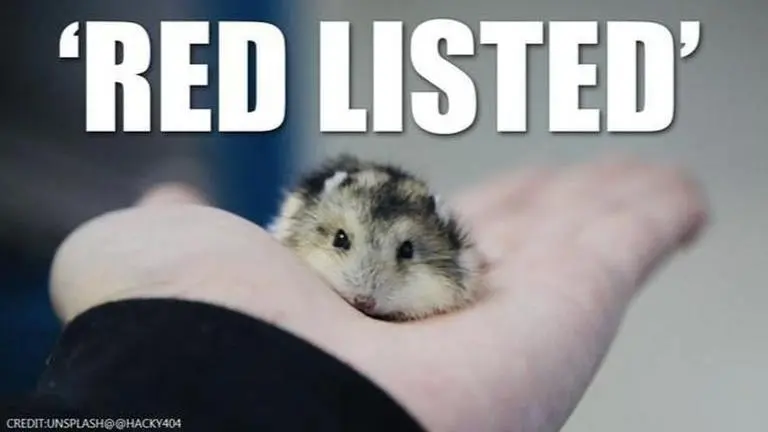Updated 17 July 2020 at 07:57 IST
'European Hamsters critically endangered, risks extinction', says IUCN
IUCN has recently added the European Hamsters to their ‘red list’ meaning the creatures are now critically endangered and risk extinction.
- Science News
- 2 min read

The International Union for Conservation of Nature's (IUCN) has recently added the European Hamsters to their ‘red list’ meaning the creatures are now critically endangered and risk extinction. As per reports, global warming, industrial development, light pollution and plantations have been reported as the probable cause for the decline in numbers.
Hamster birth rate has dropped significantly
According to reports, the IUCN has stated that over the years female European Hamsters have been giving birth to less number of babies, in the last century female European Hamsters could give birth to almost 20 babies a year but that number has dropped significantly to only five or six leading to an almost 75 per cent decline in population in the French region of Alsace, in Germany and across Eastern Europe.
Advertisement
Along with the European Hamsters, the IUCN has also added 33 different species of Lemurs to the list of critically endangered animals, 103 out of the 107 lemur species that are indigenous to Madagascar are threatened with extinction. They are threatened mainly due to deforestation and the illegal wildlife trade. Lemurs are regarded as Madagascar's 'treasure' and are one of the precious species unique to the island nation. The United Nations' biodiversity panel IPBES last year warned that up to one million species faced the risk of extinction as a result of human activities.
Advertisement
Published By : Shubham Bose
Published On: 17 July 2020 at 07:57 IST
